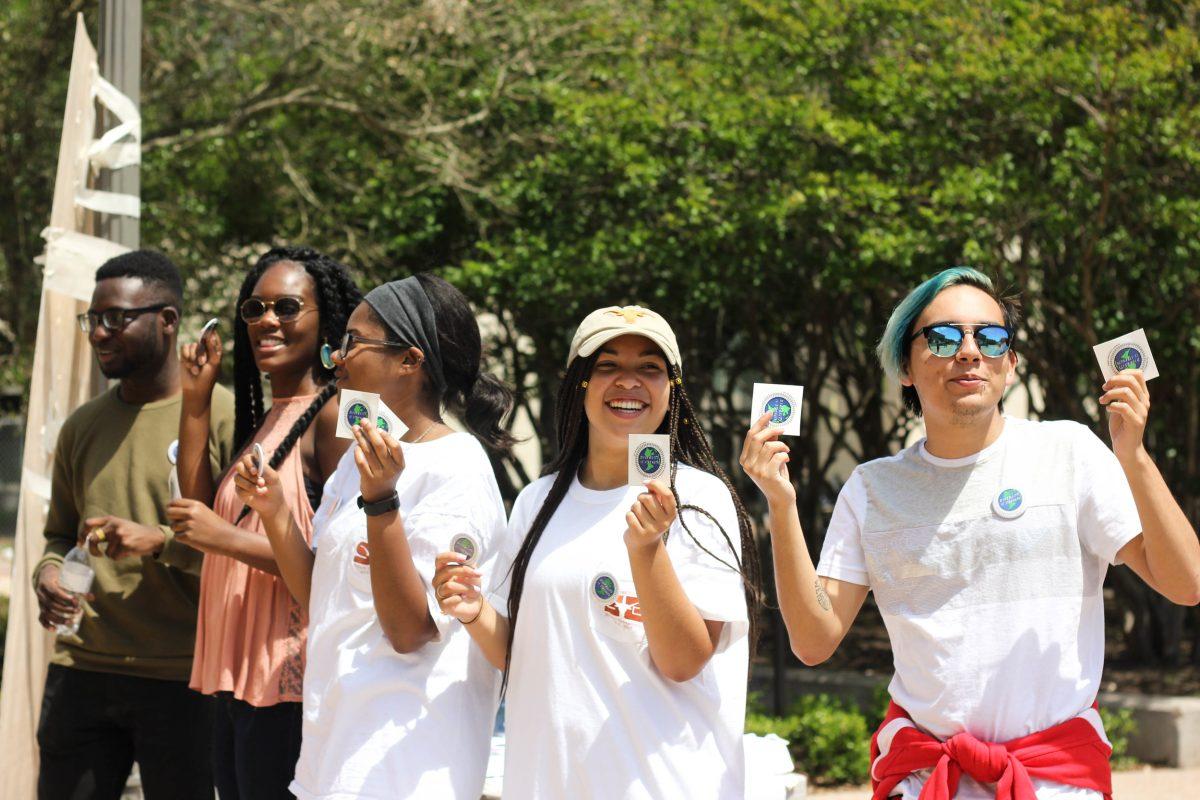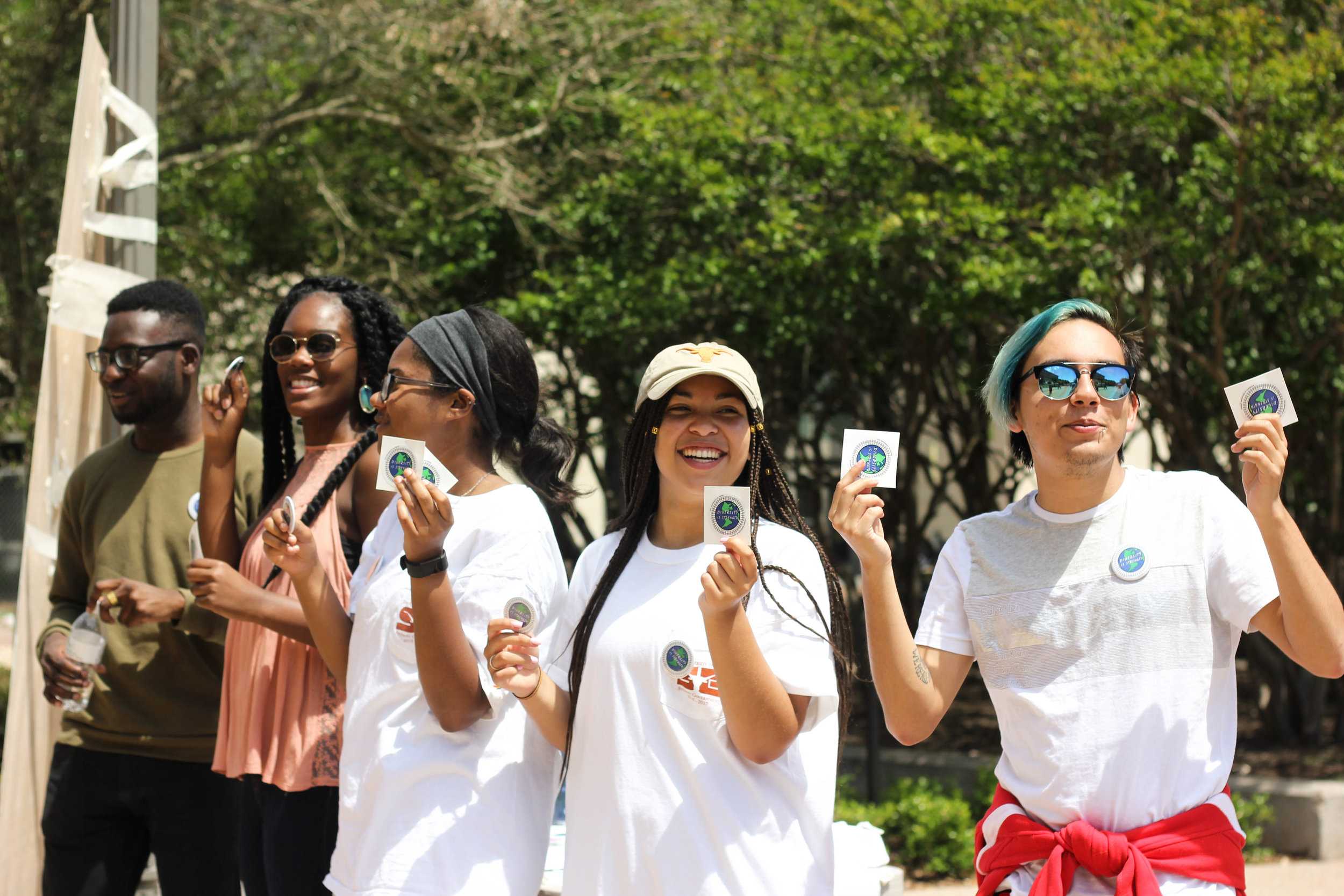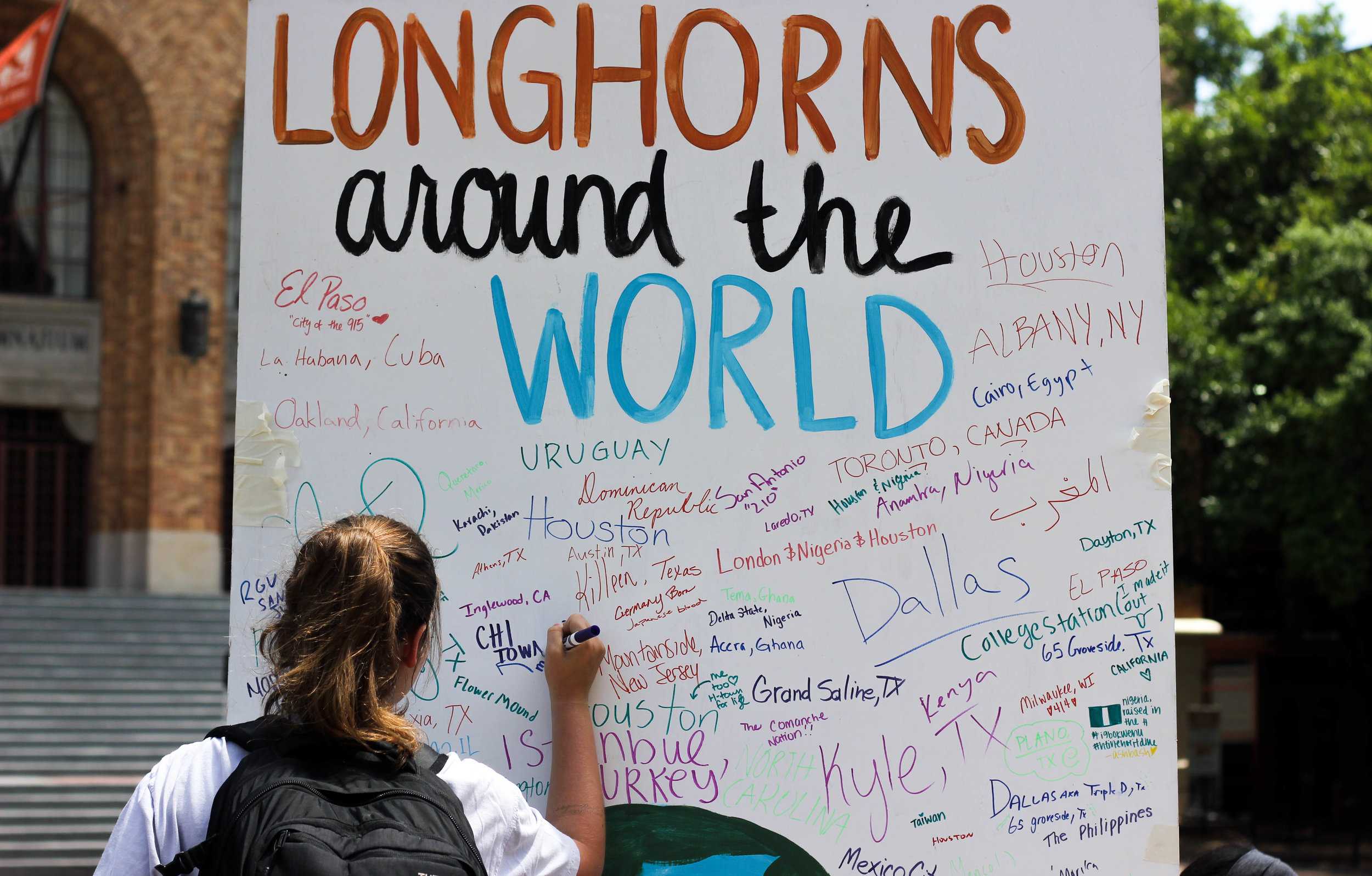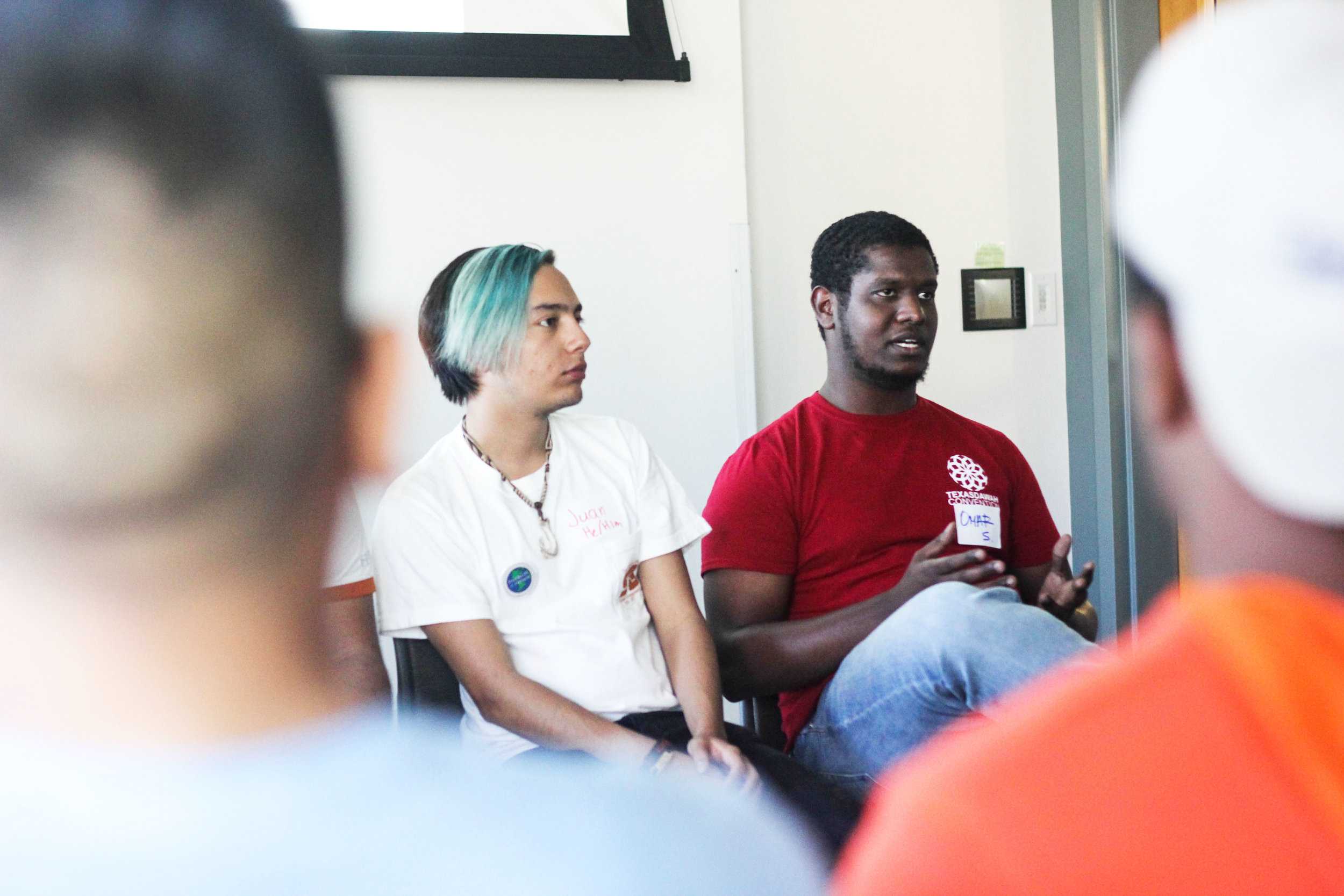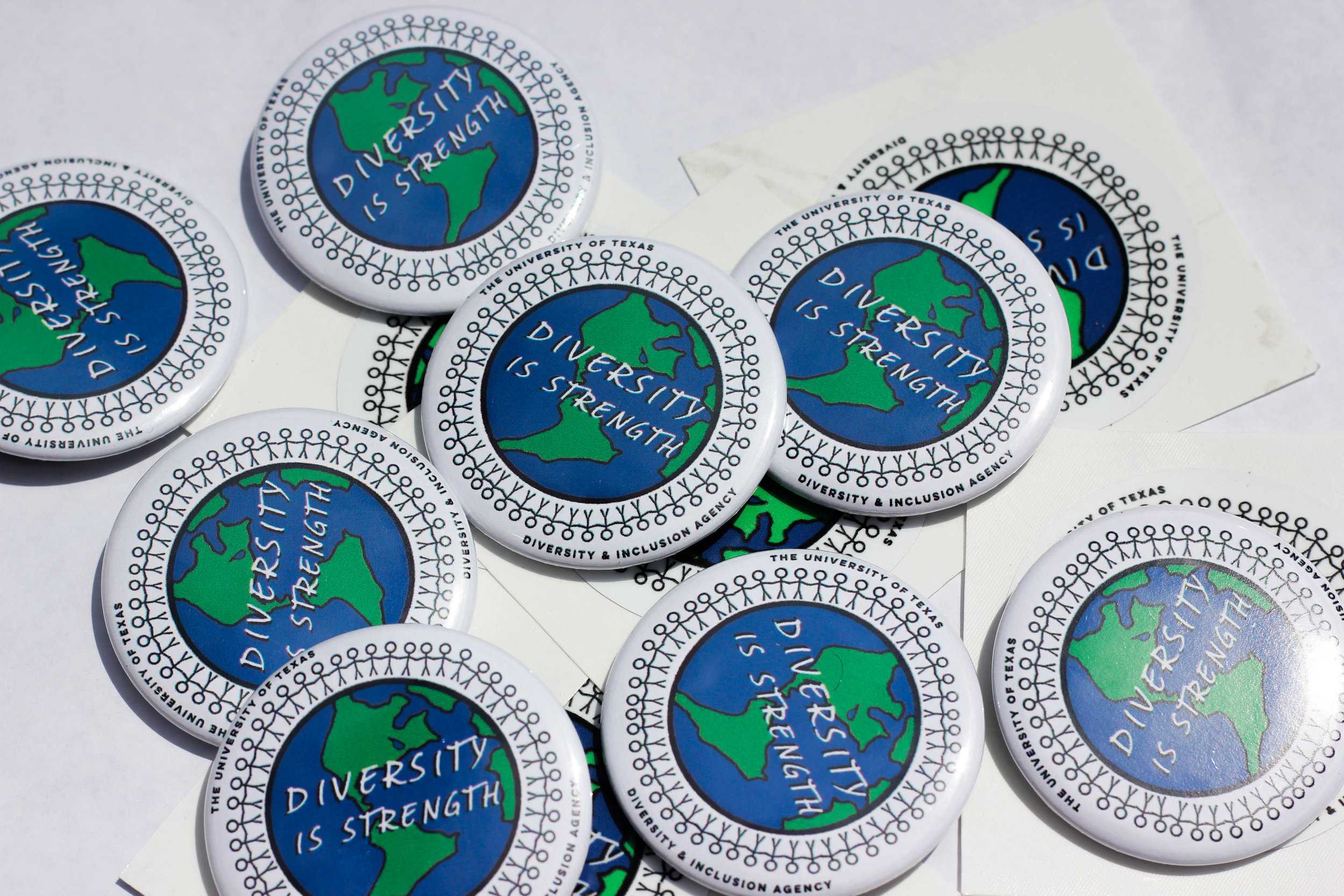Agency members gather students to participate in Diversity Mini-Week.
The Diversity and Inclusion Agency of Student Government hosted the first ever Diversity Mini-Week from April 3-5. The mini-week was dedicated to celebrating the diversity of the student body at the University of Texas at Austin, but the campaign also sparked an important conversation about issues that underrepresented groups face on campus.
Story by Jacqueline Briddell
Photos by Brittany Mendez
The organization partnered with the Students for Equity and Diversity agency of the Multicultural Engagement Center to promote three days of interactive diversity events. On Monday and Tuesday, agency members tabled at Gregory Plaza and asked students to contribute to the conversation by writing what diversity means to them on wooden boards.
Alexis Roberts, an American Studies first year and agency member, estimates that the organization collected over 300 comments on their boards in the two days they spent standing outside. Roberts says the mini-week wasn’t aiming to change the dynamics of the university immediately, but the main focus was to spark a conversation about something that is not always addressed in an academic environment.
The Diversity and Inclusion Agency of Student Government put together a Longhorns Around the World Board where students can share their diverse identities.
“Even though we didn’t make people talk about diversity directly with our first two events, it made people who wouldn’t have thought about it, think about it,” Roberts says. “And that’s all we could’ve asked for.”
On Wednesday evening, the last night of the mini-week, five student leaders from various marginalized communities on campus shared their experiences at a discussion panel about diversity. The panelists included student leaders from organizations including the Muslim Students’ Association (MSA), Student Government, Latino Community Affairs, the Center of Asian American Studies and the Queer and Trans Students Alliance.
Panelist Omar Salim, from the Muslim Student Association, talks to the crowd about his experience being a black Muslim on campus.
Panelist Omar Salim, an architecture fifth year and MSA president, encouraged audience members to continue to be vocal about their grievances and advocate for a safe and inclusive campus for all students. “You have to keep going,” Salim says. “Come out to these gatherings and town halls and rallies. It’s extremely exhausting, but as soon as the student body conforms, that’s it. It’s over.”
International relations and global studies third year and director of the Diversity and Inclusion Agency, Karla Chavez, thinks that despite the diverse reputation UT celebrates, the university still has a long way to go.
“I definitely think the university has room to grow in its abilities to stand up for us,” Chavez says. “I don’t think it is failing, but I firmly believe it can and should be doing more to cater to the needs and concerns of students from underrepresented backgrounds.”
Chavez thinks that the university should not focus as heavily on damage control as it should take a proactive approach to protecting marginalized groups of the student body. Instead of releasing statements after an incident, hoping to compensate for past acts of discrimination and hate speech against marginalized groups, the university should be actively expressing that it values diversity. Chavez says she has already seen the expansion of some efforts through the new implementation of the University Diversity & Inclusion Action Plan, which vows to “foster an open and supportive learning, teaching and working environment” on campus.
Pins and stickers given out by the Diversity and Inclusion Agency of Student Government.
With only five weeks left in the spring semester, the agency is not planning to hold any more events this school year. However, it intends to continue to “advocate for and celebrate diversity on campus” by increasing its involvement in legislation within Student Government.































